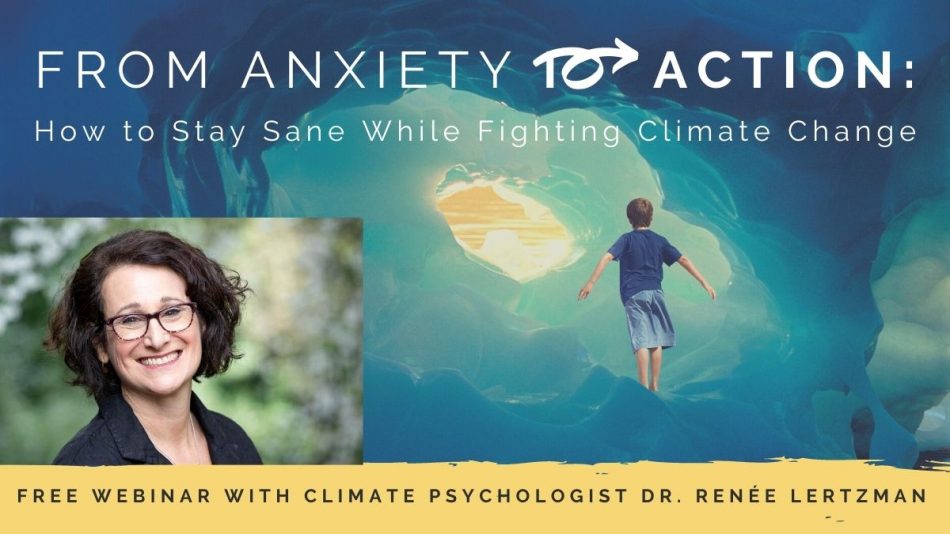We are often talking about technical solutions to help us over come the climate crisis, but what we don’t talk about so much is how the climate crisis makes us feel.
Renée Lertzman is a psychologist and environmentalist who understands that it’s completely normal to feel overwhelmed, angry, or just downright sad about climate change. Lertzman will be the leader of our From Anxiety to Action climate webinar on August 7th, which we invite all our readers to tune into.
For this week’s Thought Leader Series, we share Lertzman’s TED Talk where she dives deeper into the connection between psychology and environmental action. As an undergraduate student, Lertzman found herself incredibly distressed at the information from her environmental science classes. Fortunately, a class backpacking trip helped her unpack these emotions by speaking honestly and frankly about what she and her peers were feeling.
Through her work, Lertzman identified the link between grief and creativity with three main concepts. The first is “window of tolerance.” She discovered that people only had so much room for climate stress before they began to shut down and fall victim to either depression or denial. By talking about our emotions surrounding the climate, we open our window of tolerance and make room for additional information and solutions.
The second concept is “double blind.” Many people care deeply about the natural world around them and are distressed by the climate crisis but face a “damned if you do, damned if you don’t” paradox where they feel as though their personal actions are insignificant against the tide of a changing climate. Identifying these feelings of hopelessness helps combat them and identify ways in which even a single person can make a positive contribution.
Lastly, Lertzman identifies the importance of “attunement.” Encouraging others to be in tune with their emotions and the emotions of others. Seeking to understand our deepest emotions and the feelings of those around us is vital to becoming more adaptable and seeking solutions that work for everyone.
Using these theories. Lertzman believes that acknowledging and valuing our feelings of anxiety surrounding the climate is a key pathway to creating solutions, rather than getting stuck in a rut of frozen inaction.
The free From Anxiety to Action climate webinar will be held on August 7th at 11 am Pacific time. It will provide seven key insights that can help us turn climate anxiety, grief, and anger into action and use clinical psychology strategies to help you connect to an empowering and positive sense of purpose and motivation. Click here to learn more and register for the webinar. We hope you will join us!











